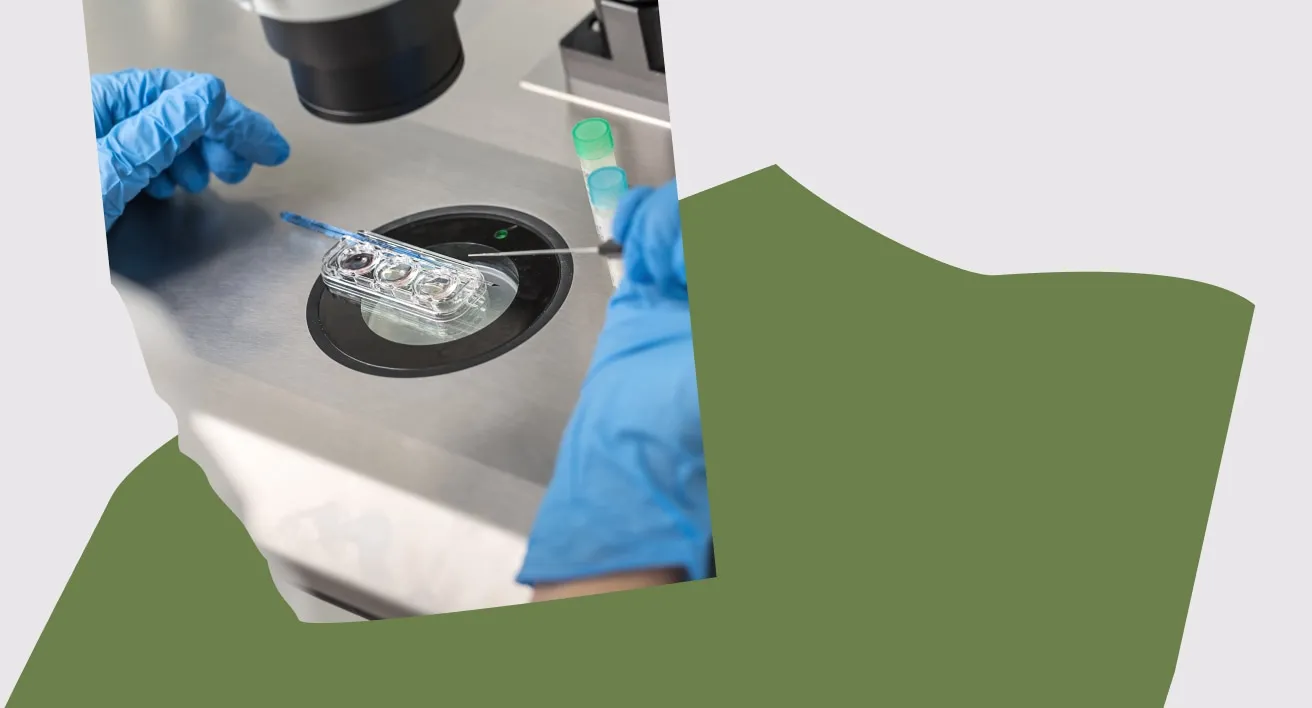Choosing a sperm donor: 6 considerations

Summary
- Sperm banks allow you to choose a donor with qualities you want. Some people choose sperm donors with similar complexions, backgrounds, or personalities to their own so that their child will bear a resemblance to them.
- Sperm is sold in vials, and many people will need multiple vials to conceive a child.
- Some donors want to be anonymous, so you and your child won’t be able to contact them. Others are open to sharing contact information after your child turns 18.
- If you’re planning to have more than one child, your children can be genetically related if you decide to use the same donor’s sperm.
There are many reasons you may decide to have a baby with donor sperm: Some women want to become mothers without a male partner; some are in same sex female couples; some couples with male factor fertility concerns or with genetic abnormalities might want to avoid passing on inheritable disorders.
While being able to hand-pick your donor is exciting, it can be intimidating, too. So, how do you choose a sperm donor? We’re here to help with a guide so that you can make an informed decision, understand the selection process, and consider all of the factors. Here are 6 things to think about before choosing a sperm donor:
How to choose a sperm donor
Sperm donor arrangement
Donors in the US can be anonymous, open to sharing information later, or a “known donor,” like a friend or family member. You can source sperm through a reputable sperm bank or from someone you know — although choosing a “known donor” isn’t necessarily easier, as they will have to adhere to the FDA requirements and quarantine periods required for anonymous donation.
Choosing the right sperm bank
Picking a sperm bank can be daunting. Your fertility clinic will likely have a list of recommended banks to help narrow your search. Most sperm banks in the United States have very strict criteria for their donors, and it may be worthwhile to check their licenses and accreditations. This is where you can be picky!
Check the legislation in your state
The United States has universal laws across all states regarding sperm donation. This means that all men who donate sperm are required to have the same blood tests and physical screening process, with a six month quarantine of samples followed by retesting. While these laws apply nationally, your state might have specific laws around the contractual agreement side of sperm donation. Your clinic will be able to tell you about laws to be aware of in your state.
Picking a known donor might feel more comfortable for you, but in most cases, it doesn’t speed up the screening and quarantine process. Most clinics also require psychological evaluations for both parties to be sure everyone understands their role after your child is born. An adoption attorney or a lawyer specializing in family law can help you understand the nuances of the law in your area.
Sperm donor characteristics
One of the most appealing parts of using a sperm donor is being able to select someone based on characteristics that are important to you.
You’ll be able to review a donor’s height and weight, their hair color and texture, their eye color, and their ethnic background. Many sperm banks offer photos of the donor as a child and as an adult, and you will have the ability to select your preferences.
You can be as specific as you want, picking hair and eye color, height, weight, athleticism, highest level of education, and much more. Keep in mind that the more specific you get, the harder it will be to find an exact match.
Cost of donor sperm
Donor sperm is sold in vials, each containing millions of sperm! Most clinics recommend purchasing 2 vials per treatment, whether it is being used for IUI or IVF, but you might choose to buy or reserve more if you want to have multiple children. Your clinic can help you navigate these decisions.
Depending on the donor, clinic, and your location, donor sperm can cost anywhere from $450–$2,000 per vial on top of an IVF cycle.
Quick plug: Gaia is the most affordable way to start and protect your IVF treatment, and a Gaia Plan can cover IVF with donor sperm. If you’re interested in a personalized, no-pressure quote, request a quote or learn how it works.
Having multiple children with the same donor’s sperm
If you’re planning to have more than one child, some people pre-pay for several vials from the same donor so that their children are genetically related. Because sperm banks can run out of a specific donor’s sperm over time, it’s smart to set aside money for more vials or to pre-pay and reserve your sperm so that you can preserve the option in the future if you decide to have more children. Some sperm banks offer “buy back” partial reimbursement programs if you pre-pay for sperm and ultimately decide not to use it.
Summary
On top of a fair and affordable way to pay for fertility treatments like IVF with donor sperm, Gaia has a team of experts and a supportive community to help guide you through your IVF journey. If you need recommendations or help to start your path toward parenthood, we can recommend a clinic near you and personalize you a quote to finance your IVF treatment.
{{all-clinics}}






